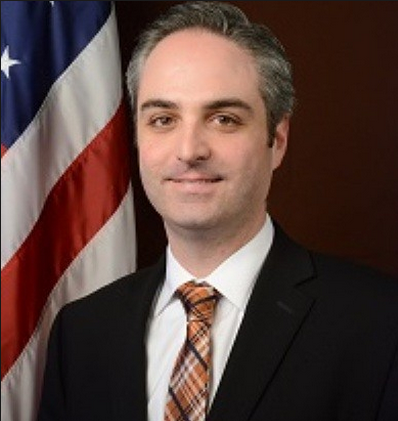Bishop: What Do The State House & Downton Abbey have in Common? An abiding sympathy for King Canute
Thursday, February 05, 2015
In the famed PBS drama Downton Abbey, Maggie Smith portrays Violet Crawley, the dowager countess of Grantham, whose upper crust habits are so brittle that they shatter with comic relief as the progressive tide rises in Britain between the 1st and 2nd world war. Losing a battle with her granddaughter over addressing a servant who has married into the family by his first name, she confesses to sympathizing with eleventh century Norwegian King Canute who famously forbid the tide to rise – to no effect as one might suspect.
Dame Smith’s aristocratic turn has found an ironic match in populist legislators here in Rhode Island who think it within their power to command electric rates not to rise, as proposed in bills H-5218 and H5221 which would arbitrarily limit increases to about 1.5% a year, regardless of costs.
No one likes expensive electricity, although the legislature has been remarkably tin eared when it comes to mandates on electric utilities that are the major contributors to this problem. For years legislators have thought nothing about disguising what are really taxes to support various subsidies and redistributions as ‘fees’ on the electric bill. And to add insult to injury, they take a 4% gross receipts tax on top of all these fees so the state gets more money every time they raise your electric bill for something else. You don’t see legislators proposing to limit the taxes on your electric bill though.
GET THE LATEST BREAKING NEWS HERE -- SIGN UP FOR GOLOCAL FREE DAILY EBLASTLegislature should fix their own mistakes
Rather than act the part of Canute, forbidding rates to rise, legislators must study the poor policies, which they have supported in the past that result in expensive electricity. National Grid has no control over the cost of electricity itself and neither they nor the PUC can simply make it cost less.
Don’t mistake this as a defense of National Grid. They are administered by a bunch of obsequious rent-seekers who don’t profit by serving their customers, but by serving the whims of legislators. The company took a metaphorical bribe in the form of “decoupling” in return for throwing consumers to the wind with the Deepwater boondoggle. But it was the legislature that offered the bribe!
Decoupling refers to automatically allowing the utility to raise distribution rates to maintain revenues if consumption falls. In an era when the legislature has made it the utility’s business to sell less of its product while providing ever more service, decoupling is an economically sensible policy. But most of the legislators who voted for it couldn’t give you an explanation of what decoupling is. What cannot be escaped is that Grid received this blessing not on its merits, but when they gave up their opposition to Deepwater Wind. Coincidence?
At least Grid has no loyalties, and blows with the political wind. The election in Massachusetts of an administration not overtly committed to economic suicide certainly helped emboldened National Grid (and NStar) to cancel contracts with Cape Wind.
Similarly, Long Island Power, in the period immediately following the elections, declined to proceed with a massively expensive utility scale offshore wind project being foisted on them by the same scam artists who brought us Deep water.
No such luck for Rhode Island where legislators worried about electric bills should stop making aristocratic pronouncements and do something useful: cancel the Deepwater project and liquidate any liabilities at minimum cost to rate payers rather than allowing this overpriced monstrosity to be a 20 year drag on our economy.
National Grid responds to incentives, we simply have offered the wrong ones
Do the RI legislature and the new Governor have the resolve to show National Grid a different face? Are they willing to stop compensating the utility for harming rate payers?
This nonsensical policy to bolster boutique renewables efforts, small dispersed installations camouflaged as ‘distributed generation’, is yet another area in which National Grid got paid off with a percentage of all ‘distributed generation’ contracts (they took a similar ‘bene’ on the Deep water deal as well – they were guaranteed to be reimbursed by rate payers but got a ‘risk premium’ anyway). There is a price for National Grid to turn the other cheek on behalf of rate payers and the legislature has forced us to pay it repeatedly.
Indeed, at last year’s hearings, the Conservation Law Foundation testified that payments to National Grid were essentially bribes so they would not oppose policies harmful to their rate payers. National Grid has been taught that it is more in their interest to serve politicians and non-profit lobbyists than their customers.
Thus, a review of Deep water is only scratching the surface of what the legislature has done wrong. They have wasted years dabbling in marginally useful alternative energy policies when they might have reformed our procurement process to incentivize hedging against winter shortages through fuel storage and increases in transmission capacity, heading off the current predictable price spikes.
Legislative effort to lower winter rates ignored the short term
Even last year, when enacting much trumpeted legislation focused on the issue of energy transmission constraints, the legislature allowed themselves to be led around by exponents of Canadian hydropower, the least economically viable alternative for reducing rates because of the massive expense of transmission lines. Originally the Canadians had committed to build these lines themselves but now hope for that risk to be subsidized by rate payers.
It isn’t that rate payers shouldn’t pay the cost of transmission, of course they should. The question is whether this transmission investment will be a piece of stranded infrastructure useful only a dozen days a year. Under the market scenario, the Canadians would pay for lines and thus have to risk that the year round operating revenues would justify the project.
This isn’t to deny the reality that any “hedges” against supply constraints cost money and if rate payers aren’t paying something for “hedges” they will almost assuredly pay higher rates. The sudden notice of the legislature is certainly drawn because winter rates have skyrocketed to over 20 cents, noticeably different from the 16 cents we were paying. But our rates have always varied by season and were over 18 cents last winter. Ironing them out is not a good idea as the expensive rates in the winter are a signal to conserve during that period – albeit the bidding periods and billing practices are not particularly well aligned with the timing of supply constraints.
But the immediate problem is not really one of big solutions that are a decade away, whether they be power lines or gas lines or energy storage. The legislature must now soberly realize, having passed a ‘solution’ last year that did absolutely nothing to mitigate rates this year, that they continue to miss real opportunities to lower rates now.
Lost in that debate over big long term fixes was the reality that the consultants to all the New England states had identified short term solutions and the ‘experts’ from the Governor’s Office of Energy Resources ignored the importance of immediate action on those items in favor of enhancing their bureaucratic fiefdom for a decade to come.
Our policymakers would have had to move with leadership and dispatch to provide that “standard offer” service – the default rates most of us pay because competitive choices have been limited -- could be procured with modestly longer lead times and for durations that better track LNG (liquid natural gas) delivery commitments. This would have allowed bids for that service to better employ the existing LNG terminal at Everett, MA. That is a piece of peak serving infrastructure that does not have to be built. It is there already and only half utilized.
Commitments for that capacity, and the LNG cargos to fill it, operate on a 3 to 5 year cycle while our standard offer service is bid on a 6 month basis. This is a disconnect that could have been remedied last year either wholly or on a partial trial basis, but these simple direct less flashy solutions were lost in the ‘big picture’ approach. The same study that legislators cited in defense of last year’s bill found LNG storage to be potentially as cost effective as even new gas lines that would take years to permit and build, both of which outperform the Canadian hydropower proposal.
These are forecasts, and when the Canadians bring us a year round competitive offer to build their own transmission and generation capacity we ought to listen. No one forecast that hedging with fuel switching to oil on peak days would have looked as attractive as it does this year. But our laws simply do not allow rate payers to capture benefits of hedging whether by changing the “standard offer” procurement or simply allowing the PUC to oversee rate payers investment directly in fuel storage -- which will cost money in years that are not particularly cold but will save more in years that are.
In the medium range, such policies could conceivably give rise to the development of localized liquefaction industry that stores gas drawn from existing pipelines whenever there is not high demand, insuring competition with shipped gas at Everett.
First order of business is to embrace fossil fuels for another generation
Of course we should reconsider our hostility to coal plants, like Brayton Point, that are critical load serving facilities but cannot run in fits and starts -- leading its owners to decide on mothballing the facility. Following $600 million in recent investments to please environmentalists, such facilities cannot undertake yet more expensive and speculative upgrades to continue operating at the mere sufferance of the very society whose economy they can power – subject to whatever momentary whim wins green favor. (Similar consideration has to be exerted regarding nuclear facilities that are load serving and are either going to run year round with their own local crews amounting to thousands of jobs in New England, or they too will be mothballed, further confounding our winter peak problems).
If there is reliable cheaper year round power, of course these plants can go the way of the dinosaur, but the demise of the age of fossil fuels is far from upon us. Oil and gas are in a historic resurgence. To invest in expensive renewables hurts the poor and middle class more than any other Rhode Islanders. It is much more efficient to use modestly longer supply contracts to drive improvement of storage and transmission for the traditional fuels that can fuel our economy for generations to come. These knee-jerk environmental sensibilities are running our state into the ground.
Instead of creating some kind of win-win scenario in which renewables ultimately fulfill the promise of ‘free energy’, the subsidies have encouraged investment in stranded inefficient infrastructure that will never pay for itself but is being needlessly paid for by electric rate payers. Rather than priming the pump of competition, this policy disincentivizes the development of renewable technology that can actually compete.
Jobs are what we get from low electricity prices, not from pie in the sky alternative energy
And, the fairy tale that Rhode Island would grow some kind of primary renewables industry, contributing jobs to the state, has simply insured the continued shrinking of real manufacturing and commerce.
Large businesses are perfectly capable of hedging for themselves to lower their actual cost of power, but while fretting about the “standard offer” power cost we have been completely giving a pass to National Grid’s side of the bill where uncompetitive transmission and distribution charges, along with a multiplicity of state mandated expenses, essentially taxes in disguise, can approach half of the cost of electricity. This represents a huge burden that neither businesses nor residents can escape and legislators never seem to notice.
If legislators are concerned about the cost of electricity, which well they should be, it is time to abandon the Canute complex. Electricity costs cannot be commanded. But if legislators are willing to confront what actually makes electricity expensive, we could bring the rates down.
Brian Bishop is on the board of OSTPA and has managed economic intervention at the Public Utilities Commission in opposition to Deepwater Wind for the fmr. Ocean State Policy Research Institute and presently monitors energy policy with the Stephen Hopkins Center for Civil Rights.
Related Slideshow: The 10 Most Politically Powerful at RI State House
Related Articles
- Pam Gencarella: A Civics Lesson From the East Bay
- Pam Gencarella: A Race to the Top or Running in Circles?
- Pam Gencarella: RI Has Lost Cabin Pressure
- Pam Gencarella: Introducing The People’s Resolution
- Pam Gencarella: Something’s Rotten in the State of Denmark, er, RI
- Pam Gencarella: Ethics is Good Business for Rhode Island
- Pam Gencarella: Another Bubble to Burst in RI?
- Pam Gencarella: Will Spring Bring Renewed Hope to RI?
- Pam Gencarella: Witness the Crowding Out of Public Services
- Pam Gencarella: Why You Should Care About a Constitutional Convention
- Pam Gencarella: Surprised, Bewildered, Shocked, Disappointed
- Pam Gencarella: What’s All the Fuss About RhodeMap RI? If You Like Your Municipality, Keep It
- Gencarella: What Side Are You On? Do Organizations & Consortium Members Really Support RhodeMap RI?
- Gencarella: RI Stands Apart From a World Where Change Is the Only Constant
- Pam Gencarella: Context Is What’s Needed - Part I
- Pam Gencarella: It’s Easy to Vote for Santa
- Pam Gencarella: Don’t Touch That Dial
- Pam Gencarella: Is the Pendulum Swinging Back Toward the Center?
- Gencarella: Are Local Governments Kidding Themselves?
- Guest MINDSETTER™ Bishop: Providence Home Owners Beware
- Brian Bishop: Rhode Island Energy Policy: The Gift That Keeps on Taking
- Brian Bishop: A Turning Point in RI: Will Voters Approve a Constitutional Convention?
























